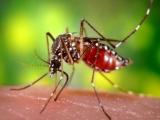Of 250 pregnant women in the United States with confirmed Zika infections in 2016, 1 in 10 had a fetus or baby with Zika-related birth defects, the largest study so far of its kind has found, with levels similar to earlier reports from Brazil and French Guiana.
The new information comes from a Centers for Disease Control and Prevention (CDC) registry for monitoring pregnant women who have potential Zika exposure. The findings also came with a warning that too few babies born with congenital Zika infections are getting the recommended brain imaging. CDC experts published their findings today in a Vital Signs report in Morbidity and Mortality Weekly Report (MMWR).
At a media telebriefing today, Anne Schuchat, MD, acting CDC director, said most of the pregnant women were infected with Zika virus during travel outside of the United States and that the Zika threat is far from over. She said the CDC is still receiving about 30 to 40 reports of pregnant women infected with Zika virus each week.
Higher risk in first-trimester infections
Today's report covers 1,297 pregnancies with possible recent Zika infection reported in 44 states in 2016. The CDC said testing for Zika virus is complex, but of 250 women with confirmed infections, 24 (10%) had a fetus or baby with related birth defects. The level was even higher—15%—in women infected during the first trimester of pregnancy.
Overall, there were 45 live births and 6 pregnancy losses in the pregnant women who had any lab evidence of possible Zika infections. Schuchat said the cases have links to travel to 16 different countries or territories.
Peggy Honein, PhD, MPH, chief of the birth defects branch at the CDC's National Center for Birth Defects and Developmental Disabilities, said for comparison, a report in December from Brazilian researchers found about a 10% birth defect level in Rio de Janeiro pregnant women who had been infected in any trimester with Zika virus. And a report from French Guiana found that about 13% of babies born to women infected during the first two trimesters had evidence of brain abnormalities. "We're seeing some consistency in the reports," she said.
Schuchat said the number of affected babies and fetuses may be an undercount, because some likely went undetected, because babies either didn't get the recommended evaluation or because some problems, such as developmental delay, don't surface until well after birth. "We're still learning about the full range of Zika," Schuchat said.
Zika's impact on babies and their families can be devastating, not only because of the heartbreaking physical effects, but also because of resources needed to care for affected babies. The cost of caring for a baby born with microcephaly is estimated to be $4 million, an amount that rises to $10 million for those who reach adulthood.
Gaps in babies' medical exams
CDC investigators also found that only one in four Zika-affected babies received recommended brain imaging after birth, a key to identifying problems and connecting babies and families to crucial medical care and support. Officials at the media briefing said the reasons are complex and not fully understood. Schuchat, however, said the recommendation for physical exam and tests for Zika-affected babies is relatively new, and many clinicians might not be aware of it and may not know the value of brain scanning.
The report also noted a gap in testing newborns who have possible congenital Zika infections: one in three had no report of Zika testing at birth.
She said though the condition is rare, pregnant women with possible Zika virus infection have been reported in 44 states, a reminder than a baby born with Zika-linked birth defect could occur nearly anywhere in the country.
With a new mosquito season just around the corner and the travel season in full swing, CDC officials today urged pregnant women to avoid visiting areas with known Zika risk and avoid unprotected sex with a partner who has traveled to an area where the virus is spreading locally. They also urged health providers to educate families on Zika prevention, provide all needed testing and follow-up care, and support affected babies and their families.
See also:
Apr 4 MMWR CDC Vital Signs report
Apr 4 CDC press release





















